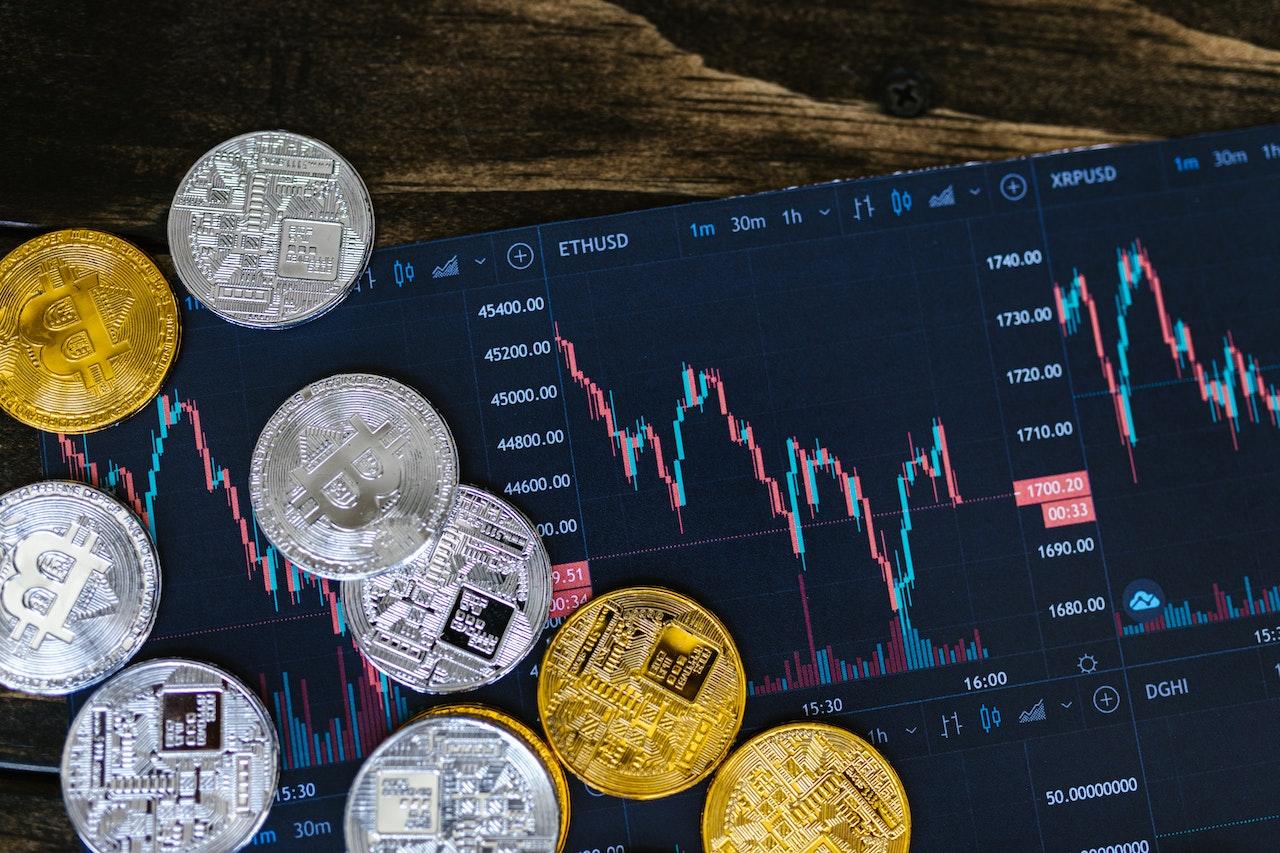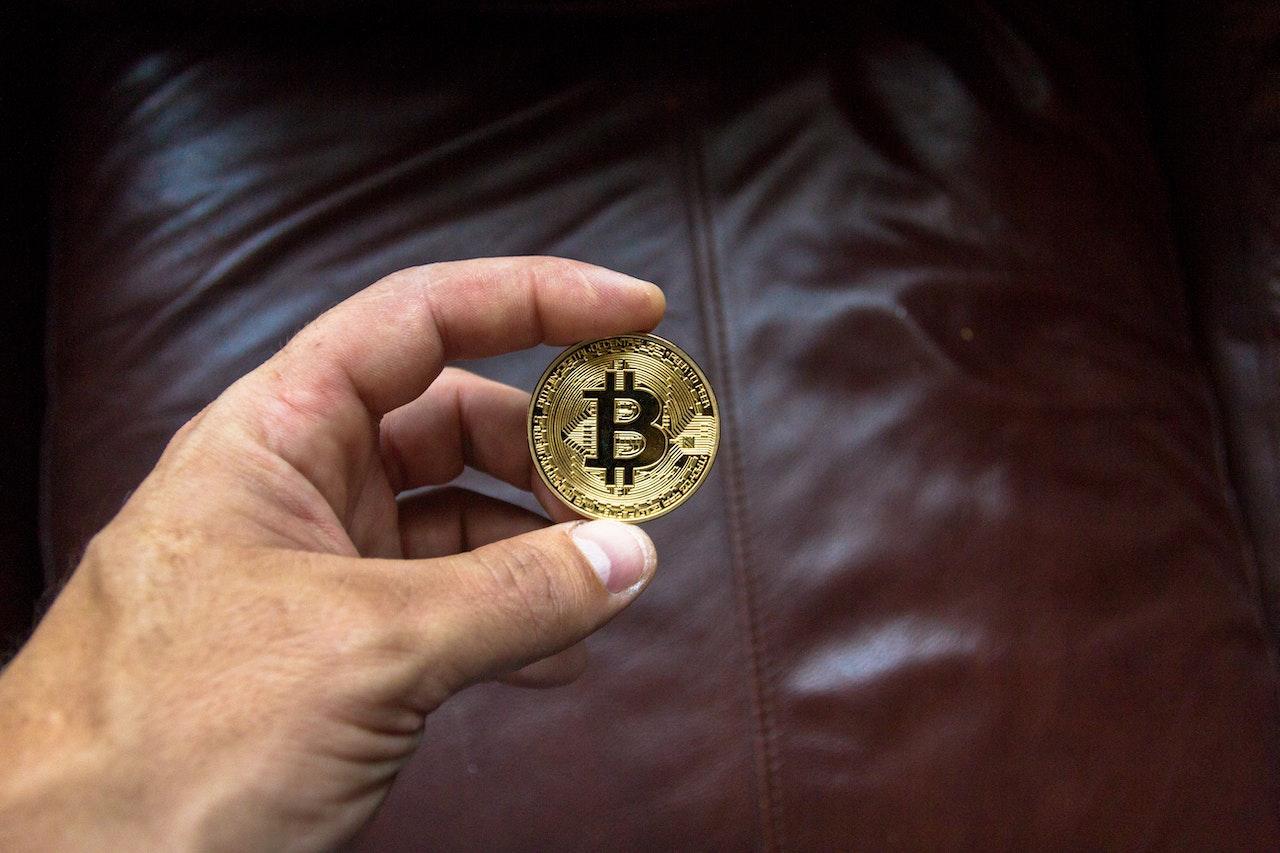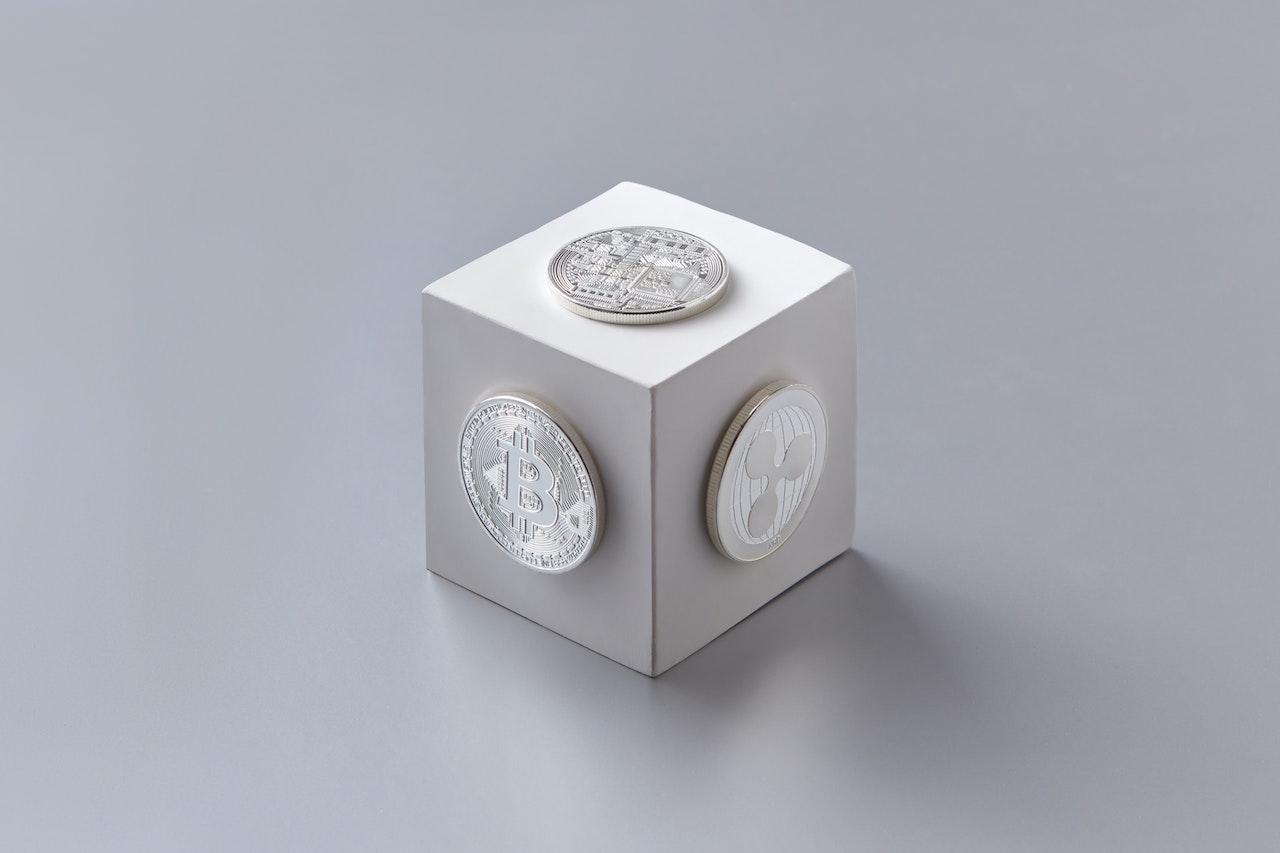Since a few years ago, blockchain has been the most talked-about topic everywhere from the news to social media to office groups.
And there is still no sign that all the noise about the blockchain and cryptocurrencies will stop any time soon. So, we made this blockchain app development guide to help you with all the most important business and technical parts of the technology.
Blockchain technology, with its apps and development tools, is becoming more and more popular. It has a lot of fans and critics. It is becoming a popular topic, to the point where a normal company changes its name and business model to fit the blockchain craze and make more money.

Interesting Blockchain Facts You Should Know
By changing its name to On-Line Blockchain PLC, a UK-based company called On-Line PLC got a lot more traffic, investors made more offers, and the price of its shares went up by 394 per cent.
We know it is hard to take in. Just take a look at these numbers:
- In 2017, the blockchain market was worth about $339.5 billion. By 2021, it is expected to be worth more than $2.3 billion.
- Dot Com Infoway has found that the global blockchain market will be worth $20 billion by the year 2024.
- Grand View Research said that the size of the blockchain technology market around the world in 2020 was USD 3.67 billion. From 2021 to 2028, it is expected to grow at an average rate of 82.4 per cent per year.
- As a report, 71 per cent of business leaders who use blockchain think it will be a key part of advancing technology, which will lead to wide support for industry standards.
With these mind-boggling numbers, it is clear that developing Blockchain apps and building blockchain projects are becoming more and more important to both new and old businesses.
So, in this guide, we’ll talk about the technical side of Blockchain technology as well as how you can use it in your business.
What is Blockchain Technology?
In layman’s terms, blockchain is a decentralised, transparent, immutable, and publicly accessible database where digital information (transactional records) are stored in blocks and linked to each other with a hash function.
On the business side, it is a network for exchanging money between people. It is a system that allows a transaction to happen and makes it legal, without the need for middlemen.
Now let’s talk about the technical side of the technology, what “Blockchain-based application development” means, and the different requirements, time, and money needed to make a blockchain application. All of this starts with the types of blockchains.

Different kinds of Blockchain Systems and Solutions
The answer to how to make a Blockchain app starts with figuring out what kind of blockchain solution you want to make.
- Network-based blockchain
- Crypto Support
1. Network-based Blockchain
You can choose either permissionless blockchain solutions or permissioned blockchain solutions when building a blockchain on a network.
i). Permissionless Blockchain
In blockchains that don’t need permission, the whole network is open to all computers and devices. Anyone can get access to the code, start a public node on a local device, start a transaction in the network, and verify it, all while staying anonymous.
In short, a blockchain that is decentralised, available to everyone, and can be used anonymously is called “permissionless.” Bitcoin, Ethereum, etc.
ii). Permissioned Blockchain
It means a closed ecosystem where only the people who are allowed to act can do so based on their roles. These kinds of blockchains are based on a set of rules that tell how a transaction will be done to meet the needs of a certain organization (for eg: database management, auditing, etc.). Eg: Multichain.
There are two types of blockchain, but when it comes to public and private permissions, the types are further broken down into public and permissionless, public and permissioned, private and permissionless, and private and permissioned.
Businesses want a private blockchain network that only certain people can join. A consortium blockchain is another name for a private blockchain that only certain people can use.
2. Crypto-based Blockchain
As the name suggests, these kinds of blockchain solutions are powered by cryptocurrencies. In this group, the most popular types of blockchains are:
i). Wallets
Cryptocurrency wallets are safe digital wallets that hold public or private keys that can be used to send, store, or receive cryptocurrencies.
This type of blockchain is mostly about converting and trading cryptocurrencies in a centralised, decentralised, or hybrid setting. It is also known as a cryptocurrency wallet or a crypto wallet.
ii). Crypto Exchange
Cryptocurrency exchanges are basically the blockchain systems that are used to trade cryptocurrencies or digital currencies.
They accept credit cards, postal money orders, and other forms of payment and send the cryptocurrency to your cryptocurrency wallet. Digital Currency Exchange (DCE) systems are another name for these systems.
iii). ICO
Initial Coin Offerings (ICO) or Initial Currency Offerings (ICO) are thought to be a way to raise money by making and selling cryptocurrencies or crypto tokens.
iv). Dapp
A decentralised app development service, or dApp development service, works on apps that aren’t run by just one person or group.
With the help of trustless protocols, it can be run in real-time by multiple users on a decentralised, P2P network. Augur, Golem, and Sia are the best examples of what a company that makes decentralised applications (dApps) can do.

Popular Blockchain App Development Platforms
Even though there are more than 25 platforms for building blockchain solutions, the following are the most popular ones for blockchain and distributed ledger technology (DLT) development:
i). Ethereum
It is a public, open-source platform and operating system that can be used to build blockchain-based dApps and ICOs with smart-contract features.
Ethereum is more flexible and adaptable than bitcoin, which makes it the first choice for every blockchain app development company that wants to build a blockchain app.
ii). EOS
The goal of the EOS platform is to offer smart contracts, decentralised application hosting, and decentralised storage of enterprise solutions. This solves the scaling problems of Blockchains like Ethereum and Bitcoin and gets rid of all the fees that users have to pay.
iii). Multichain
It is a platform that gives blockchain app developers the tools they need to build and deploy private blockchain solutions that can be used within an organization or between organizations.
iv). LiquidApps
The company behind DAPP Network just released DSP 2.0, which makes the platform much more powerful and flexible. They can help make many different kinds of dApps.
v). Hyperledger
It is an open-source platform used to make advanced blockchain software development solutions. For instance, building blockchain solutions based on the Internet of Things (IoT) or making blockchain apps for managing the supply chain, etc.
vi). IOTA
It is an open-source DLT-based solution that is used to make payments between IoT devices faster and safer.
This platform uses directed acyclic graph (DAG) technology and has unique features, such as free transactions no matter how big they are, faster confirmation times, the ability to handle an unlimited number of transactions at once, etc., which makes it the perfect place to build payment systems.
vii). Quorum
Based on Ethereum, it is an open-source DLT and smart contract platform.
Now that you know about the different blockchain development platforms, it must be hard for you to decide which one to use to build a blockchain system.
Blockchain Application Development: Factors To Think About

1). Platform Name
Some blockchain platforms are based on cryptocurrencies, but others use smart contracts or more than one cryptocurrency token. The process of making Blockchain applications will be easier if you know which type is best for you.
2). Smart Contracts
The second thing you should think about is whether or not you need a smart contract. You may already know that a smart contract is a protocol that runs itself and processes, verifies, or enforces any action based on a trigger that is stored on the blockchain system.
3). Consensus Protocol
Different consensus protocols, like Proof of Work, Proof of Stake, Proof of Elapsed time, Proof of Burn, etc., are used by different blockchain development platforms. So, figuring out the right platform based on the consensus protocol is also a good thing.
4). Cryptocurrency
The next thing you need to think about when answering the question “How to develop a Blockchain app?” is whether or not you need to use cryptocurrencies in your mobile app. This is also a key factor in choosing the right platform.
5). The Public/Private Network
Ask yourself if you want a network where anyone can make changes or one where only authorized users can take part. Choose the platform based on your choice and start making your own blockchain application.
6). Adoption Rate
It is important to find out how many people are using a blockchain and how much community support it has. The adoption rate is a measure of how widely a certain blockchain technology has been used.
Choosing a technology that has been widely accepted and used is a better choice than choosing one that hasn’t been used as much.
7). Scalability
People who want to use existing technology to build blockchain platforms should take a look at how transactions work and decide if their needs will be met.
When thinking about how scalable a blockchain is, there are three main things to keep in mind: speed, security, and the fact that it is not centralised. This is called the “Scalability Trilema,” and it shows that a developer can only hope to get two of the three features.

Languages For Blockchain App Development
There are different programming languages that can be used to build blockchain applications, just like there are different platforms.
You can start with standard programming languages like C++, Python, Go, and Java, or you can move on to more advanced languages made just for blockchains, like Simplicity and Solidity.
1. Simplicity
Smart contracts on the blockchain are made with simplicity in mind. The language is easy to use, uses static analysis, and can be seen as an improvement over the basic cryptocurrency languages like Ethereum Virtual Machine (EVM) and Bitcoin Script.
2. Solidity
Solidity is a programming language for building smart contracts that run on the EVM. It is typed statically and is used to build smart contracts.
With this language, it is easy to make smart contracts that have self-regulating business logic and leave a record of transactions that can’t be disputed.
Industries Where Blockchain Applications Are Most Useful
1. Finance
Fintech is the field where Blockchain made its first appearance.
The powerful features of the technology—transparency and decentralization—are what have led to a rise in the use of Blockchain in finance and helped create a new Defi and open finance ecosystem, both of which are important for fintech software development.
2. Government
From Dubai to Thailand, a number of cities have realized the importance of blockchain in government and embraced its potential to speed up a number of processes, including voting, dividing up the land, and a number of other political issues.
3. Healthcare
Healthcare and Blockchain are linked in a very clear way. The former uses the latter not only to spread out the huge amount of data but also to stop the many hacks and security breaches that happen when there isn’t a decentralised system.
4. Supply Chain
The Supply Chain, which is a part of Operation Management, is one of the places where Blockchain has the most direct effect.
The technology makes it possible for the Supply Chain industry to make sure that there are no holes in the system and that everything is clear from the time an order is placed until it is delivered.
5. Real Estate
The real estate market is a great place for Blockchain technology to be used because it deals with a huge amount of data and paperwork. Also, the Smart Contract feature is very useful in a field where many contracts are made.
Even though these fields are known to use Blockchain technology applications a lot, the decentralised medium is not limited to them.

How Can Different Businesses Use Blockchain technology?
Now that you understand how the blockchain works in the tech world, you must be excited to use blockchain technology in your business. Have a plan or are you still not sure how to use blockchain to change your business in a way that makes money?
Blockchain, with its unmatched potential, can be used in your business in a number of ways, including:
1. For Business Deals
Blockchain technology, which is at the heart of Bitcoin and other cryptocurrencies, is about to change the way transactions work. The lack of middlemen will not only speed up the process, but it will also make it possible to transfer money safely and for a very low fee.
Some real-world examples of how companies use the blockchain are Bitwage, Abra, and Coinpip, which use it to move money and handle payrolls.
2. Decentralized Cloud Storage
Like the company Storj, you can also use blockchain to give your customers cloud storage that is faster, easier, and safer. You would have to choose a trusted BaaS provider for the same thing.
3. Smart Contracts
With smart contracts, you can get around some rules and lower the cost of a number of financial transactions. The best part is that these agreements are safe and can’t be broken.
Slock, which is an IoT platform based on Ethereum and uses blockchain to let customers rent anything by unlocking a smart lock once both parties agree to the terms and conditions, is one of the existing applications. Synaps gives out microloans by using blockchain.
4. For the Notary’s Use
The development of blockchain can also be thought about for notary and authentication purposes.
Here are some examples from real life: Uproov is a smartphone-based multimedia platform that lets users share an image, video, or sound recording to create a notary using blockchain.
5. For Supply Chain Management
Since different parts of the supply chain come from different places, a problem at one end can affect the whole process. To solve this problem, blockchain technology can be used to make secure, permanent records that can be checked and where everyone involved can see the whole process.
Want to see some real-world examples? SkuChain and Provenance are two companies that use blockchain to make the supply chain system run more smoothly.
6. In Digital Identification Process
Blockchain can be used to give us digital identities that can’t be changed, can’t be disputed, and are safe. This means there will be less fraud and it will be easier to sign in.

Exploring The Wave Of Blockchain App Development
We hope this guide to building blockchain apps was helpful to you. Even though the basic function of verifying and transferring financial information is useful in almost all industries, at the current level of development, it seems like financial services, government, and healthcare are the best ones for Blockchain-app-based solutions.
With all the information and examples above, you should have started to think of your own idea for blockchain app development.

Hi, my name is Marry Wilson. I am a Blockchain research analyst, avid learner, and passionate writer about revaluations in the field of Blockchain Tech. I’m researching and writing about blockchain development services, crypto services, finance, the latest trends in the metaverse and many more.
